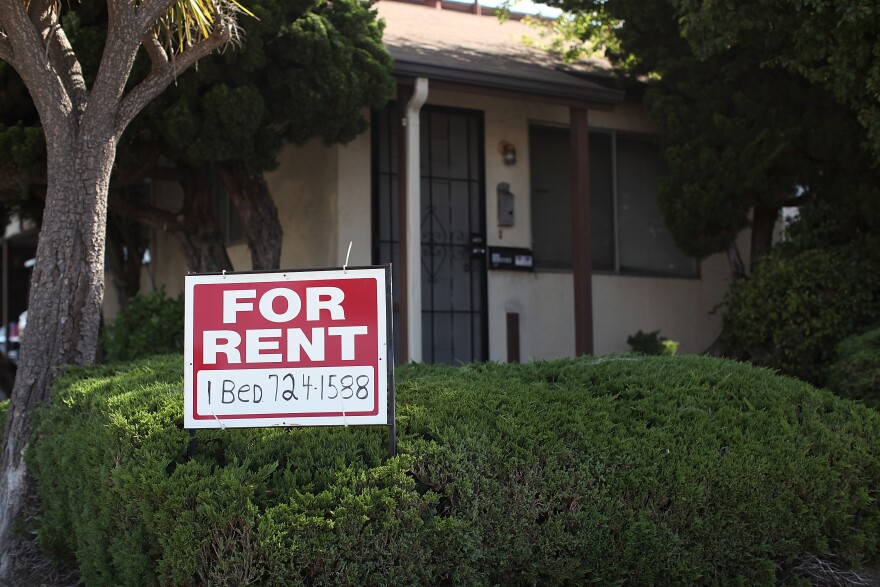This story is free to read because readers choose to support LAist. If you find value in independent local reporting, make a donation to power our newsroom today.
This archival content was originally written for and published on KPCC.org. Keep in mind that links and images may no longer work — and references may be outdated.
Q&A: Things to know about LA's planned rent registry

Every year in Los Angeles, there are hundreds of instances of landlords illegally raising the rent. City officials have a plan to stop that: creating a registry where landlords are required to report how much they charge for apartments each year.
Here are some things to know about the planned rent registry.
Which apartments would be included in the rent registry?
The registry would be for apartments covered by the city's rent stabilization ordinance (often called R.S.O.) That's about 620,000 units — the bulk of the city's apartments — built before 1978. The law protects tenants in those units from facing large rent increases: A landlord is allowed to raise the rent by only a certain amount. In recent years, it's been 3 percent.
If the law exists, why are there landlords illegally raising the rent beyond 3 percent?
The city keeps records that show which units fall under the RSO, but the city doesn't ask landlords for how much they charge. So, currently the city has no way of knowing when a landlord is breaking the law – except if a tenant files a complaint to the city. At that point, the city can investigate that complaint. Rushmore Cervantes, head of the city's housing department, said the complaints are investigated by the City Attorney's office and some landlords are subject to fines. Tenants are refunded the money they're owed.
How would a rent registry work?
The rent information provided by the landlord would go into a registry accessible to the public. You could go online, type in your address, and see what the rent is and how much it can go up each year.
What would it cost?
City officials propose to pay for this registry by adding $2 to $4 to the annual $24.71 rent stabilization fee that landlords and tenants already have to pay.
Will a registry stop illegal rent increases?
Not necessarily. Cervantes said it would add a layer of transparency that would make it difficult for landlords to get away with overcharging their tenants. But given the sheer amount of housing in Los Angeles, the city is unable to individually check compliance for each unit, and it will still depend on tenants to help police the law.
What do landlords think of this idea?
"(It's) not necessary," said Jim Clarke of the Apartment Association of Greater Los Angeles, a group that represents local landlords. "We're opposed to it...It's just another hoop that owners have to jump through during their course of business."
Do any other cities have rent registries?
Neighboring Santa Monica and West Hollywood both do. They collect rent information at the start of a tenancy, rather than annually, as housing officials in Los Angeles are proposing.
Where does the plan for a rent registry stand?
The proposal has the support of the mayor's office and is going before the City Council's Housing Committee Wednesday. The panel is expected to recommend approval to the full council, and a vote may take place in the coming weeks.
Never mind this rent registry. I think my landlord is illegally raising the rent on me. How do I file a complaint?
The city's housing department allows renters to make complaints online. Last year, the city received 7,920 complaints. Under a quarter of them were substantiated.








